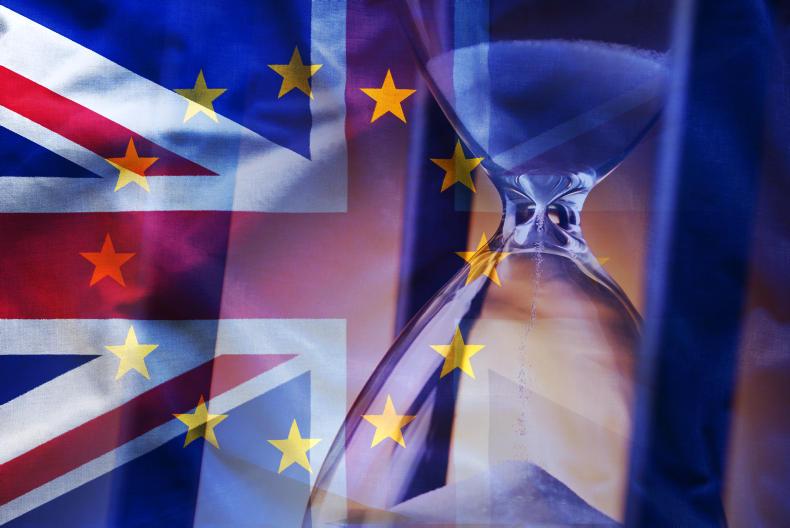In recent weeks, the UK has been going back on what it agreed last October, in both the Irish protocol and the political declaration on relations with the EU and with Ireland.
The newly appointed Northern Ireland secretary has stated there “will be no border down the Irish Sea”. Boris Johnson has made similar comments. Both statements contradict the legally binding protocol the UK agreed with the EU last October.
Boris Johnson said, in a speech in Greenwich earlier this month, that: “There is no need for a free-trade agreement to involve accepting EU rules on competition policy, subsidies, social protection, the environment or anything else any more than the EU is obliged to accept UK rules.”
Furthermore, his EU negotiator David Frost said in Brussels last week: “To think that we might accept EU supervision of so-called level playing field issues simply fails to understand the point of what we are doing.”
Contradiction
This is in flat contradiction of the political declaration the UK agreed with the EU in October as part of the withdrawal treaty process.
Why is this happening? The withdrawal agreement was made before the UK general election, when Johnson led a minority government. Now he has an overall majority and the prospect of four more years in office.
On the other hand, with his big majority, Johnson has no need to make belligerent statements for domestic consumption – unless of course he actually wants to provoke a breach with the EU and have no trade agreement at all with it.
Some Tory backbenchers have said they would like that. They should be reminded that the protocol on Ireland would still apply, in international law, even if there is no trade deal at all between the UK and the EU.
Ireland needs to work out a plan to deal with a breakdown in trade, commercial and security relations between the UK and the EU.
The implications of a breakdown would be enormous. Both Ireland and the EU must have a contingency plan to provide for a breakdown in the talks. We need a strong Irish government that can face up to these questions in a frank and decisive way.
The Northern Ireland secretary’s statement that there “will be no border down the Irish Sea” contradicts Article 5 of the protocol on Ireland. That is a defiance of a Treaty obligation ratified by the EU and UK parliaments. It suggests the UK is not a reliable negotiating partner.
In Article 5 of the protocol, the UK explicitly agreed that EU customs duties would be collected on goods coming into Northern Ireland from Britain if those goods were “at risk of subsequently being moved” to the rest of Ireland and thus into the EU.
It was also envisaged that goods would have to be checked in order to allow for the collection of VAT and to verify their origin.
The protocol said EU officials have a right to be present for these checks, to assure themselves UK officials were correctly interpreting the EU laws that would apply in Northern Ireland.
The protocol contains detailed provisions for determining how UK goods that might be at risk of entering the EU through Ireland, might be identified and controlled and how the customs duties on them might be collected. The whole point was to ensure this would not have to be done at the land border in Ireland. So it had to be done before the goods entered NI, effectively on either side of the Irish Sea.
It is impossible to see how the new Northern secretary’s comment on the border can be compatible with the legally binding protocol agreed to by the UK.
The UK government is also backing away from commitments it made in the political declaration accompanying the withdrawal treaty. This declaration is the framework within which the UK agreed it would negotiate its future relationship with the EU.
Bad faith
It is part of the withdrawal process under Article 50 of the EU Treaties. It is a pledge of good faith by both sides. If either the EU or the UK were to back away from the political declaration, it would amount to bad faith and could poison future relations.
Article 17 of the political declaration says a future partnership between the UK and the EU should ensure “a level playing field for open and fair competition”. Article 77 commits the UK and the EU to “uphold the common high standards applicable to the EU and the UK at the end of the transition period in areas of state aid, competition, social and employment standards, environment, climate change and relevant tax matters”.
When the UK’s chief negotiator, David Frost, now talks about a “so-called” level playing field, he is belittling a commitment given by his own government, as if it never had any real meaning or seriousness.
One can accept of course that once the UK leaves the EU, the EU should accept the autonomy of the UK’s decision-making processes and vice versa. In a legal sense, there will be a relationship of equals between the EU and the UK.
But if there is to be trade between the EU and UK, it is only common sense that there is basic compatibility of standards. Indeed, most modern trade agreements are more about standards than they are about mere tariffs and quotas. It is also common sense that there are equivalent rules to protect workers and the environment.
The common standards applying now in the UK are the existing EU standards. In Article 17, the UK agreed there would be no rolling back of these EU standards. But the political declaration does not prevent new rules being made by either side, so long as they do not reduce these standards. So it is difficult to know what Mr Johnson and Mr Frost are talking about.
Belligerent statements sometimes precede eventually successful trade negotiations. But when belligerence is combined with an artificially tight time limit, and with emotive matters like access to fishing grounds, one can see the possibility of dangerous confrontation and a complete breakdown in the talks.
The UK, if it wants good relations with all its immediate neighbours, should re-read the agreement it has already made with the EU and respect it.
Boris Johnson has won his election and does not need to play to the gallery anymore. Meanwhile the EU should also be careful not to over-estimate its own negotiating leverage. The stakes are high.










SHARING OPTIONS